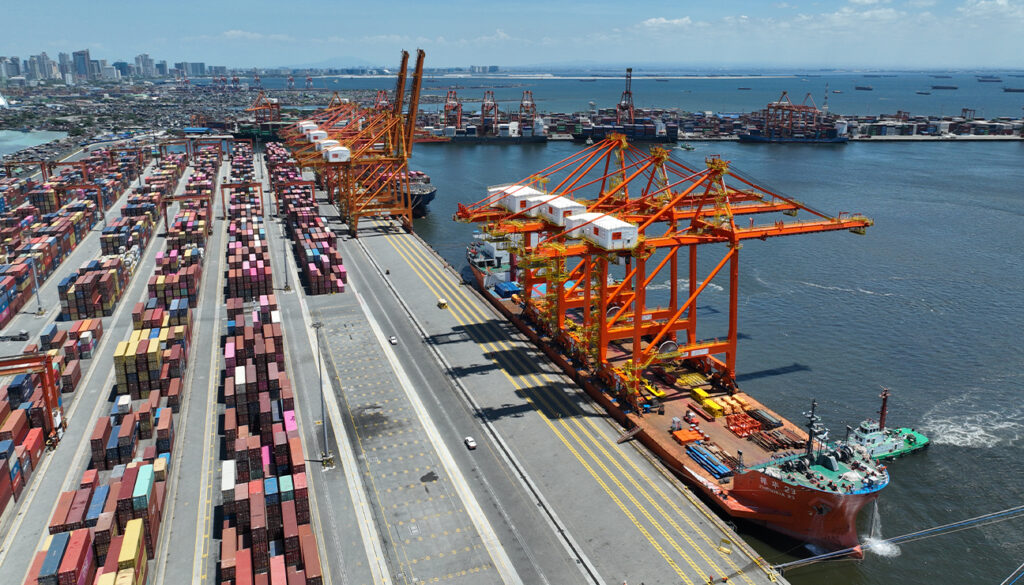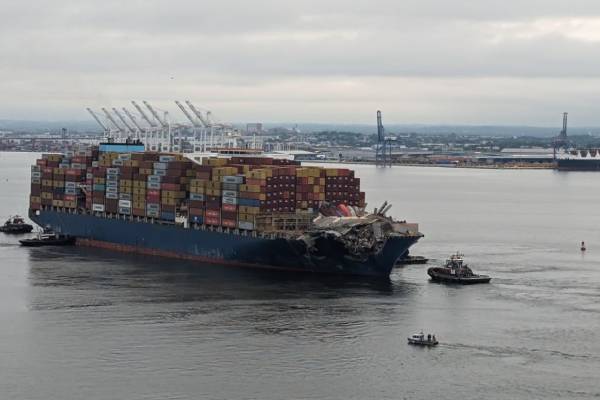One day before talks were scheduled to take place between the International Longshoreman’s Association (ILA) and the United States Maritime Alliance (USMX), regarding their soon-to-expire labor agreement, at the end of September, the ILA said earlier today it has suspended talks, at a time when negotiations of local agreements under the parties’ coast-wide Master Contract were ongoing.
The ILA is the largest union of maritime workers in North America, representing workers at 36 ports from Maine to Texas. And the USMX is an alliance of container carriers, direct employers, and port associations serving United States-based East and Gulf Coasts.
The current six-year labor deal between the parties was completed in September 2018 and covers roughly 14,500 U.S. East and Gulf Coast port workers. ILA said at the time of the deal’s completion that this six-year contract extension will bring generous pay increases, landmark protections against job-killing fully automated ports, and labor peace and stability through September 30, 2024.
As the clock ticks on the expiration of the current deal, industry stakeholders are clamoring for a new deal to be reached in a timely manner, which will not negatively impact, nor disrupt, port operations, at a time when supply chain issues have ostensibly been prevalent for more than a while, coupled with ongoing Red Sea and Panama Canal issues, 2024 being an election year, retailers’ restocking efforts, and transportation supply and global port congestion issues, among others.
In a statement issued today, ILA officials explained that it cancelled Master Contract talks with the USMX upon learning that APM Terminals and Maersk Line are using an Auto Gate system that autonomously processes trucks without ILA labor, adding that this system, which was initially identified at the Port of Mobile, Alabama, is also being used at other ports, too.
An ILA spokesman call this another example of USMX members unilaterally circumventing the coast-wide Master Contract, calling it a “clear violation” of the agreement.
“There’s no point trying to negotiate a new agreement with USMX when one of its major companies continues to violate our current agreement with the sole aim of eliminating ILA jobs through automation,” said ILA President Harold J. Daggett, who is also serving as chief negotiator for the ILA.
What’s more, ILA said it will not meet with USMX until the Auto Gate issue is resolved. And it said it is still waiting on results from an audit for jobs created out of new technology, adding that they have been waiting for it for nearly two contract periods. The ILA has observed an increasing number of IT personnel on marine terminals, with concerns that APM and Maersk’s IT departments in Charlotte, North Carolina, are encroaching on their jurisdiction, it added.
As for next steps, ILA indicated that given the various issues needing to be addressed between the parties, it has “very little faith” the issues will be addressed with time running short in advance of the current contract’s expiration date. And it also called on the White House to “recognize the threat posed by foreign-owned companies attempting to undermine American jobs,” too.
In a letter written earlier this year to ILA President Harold Daggett and USMX President and CEO David Adam by National Retail Federation (NRF) President and CEO Matthew Shay, Shay said it is critical that a new deal agreement is reached before the current one expires to provide supply chain stakeholders with the certainty they need for their operations.
And he also cited how with shippers evaluating alternative alternatives, or contingency plans, to address the Red Sea and Panama Canal issues, the potential for a coastwide disruption from labor negotiations could lead to retail shippers and other businesses shifting operations away from East and Gulf Coast ports. He added that timing is key in getting a deal done, with the contract’s expiration date in line with Peak Season, too.
That was echoed in an NRF statement provided to LM as well.
“NRF urges the ILA and USMX to immediately return to the bargaining table and continue negotiating a new labor contract before the current one expires in September,” it said. “It is critical that significant disruptions, including labor strikes, are avoided in order to minimize any negative economic impact. Retailers are now in peak shipping season and bringing in their back-to-school and holiday merchandise. Any disruption could affect these important selling seasons. We encourage the administration to work with the negotiating parties, as they have in other instances, to keep the parties at the table and quickly reach a final agreement.”
By Jeff Berman





